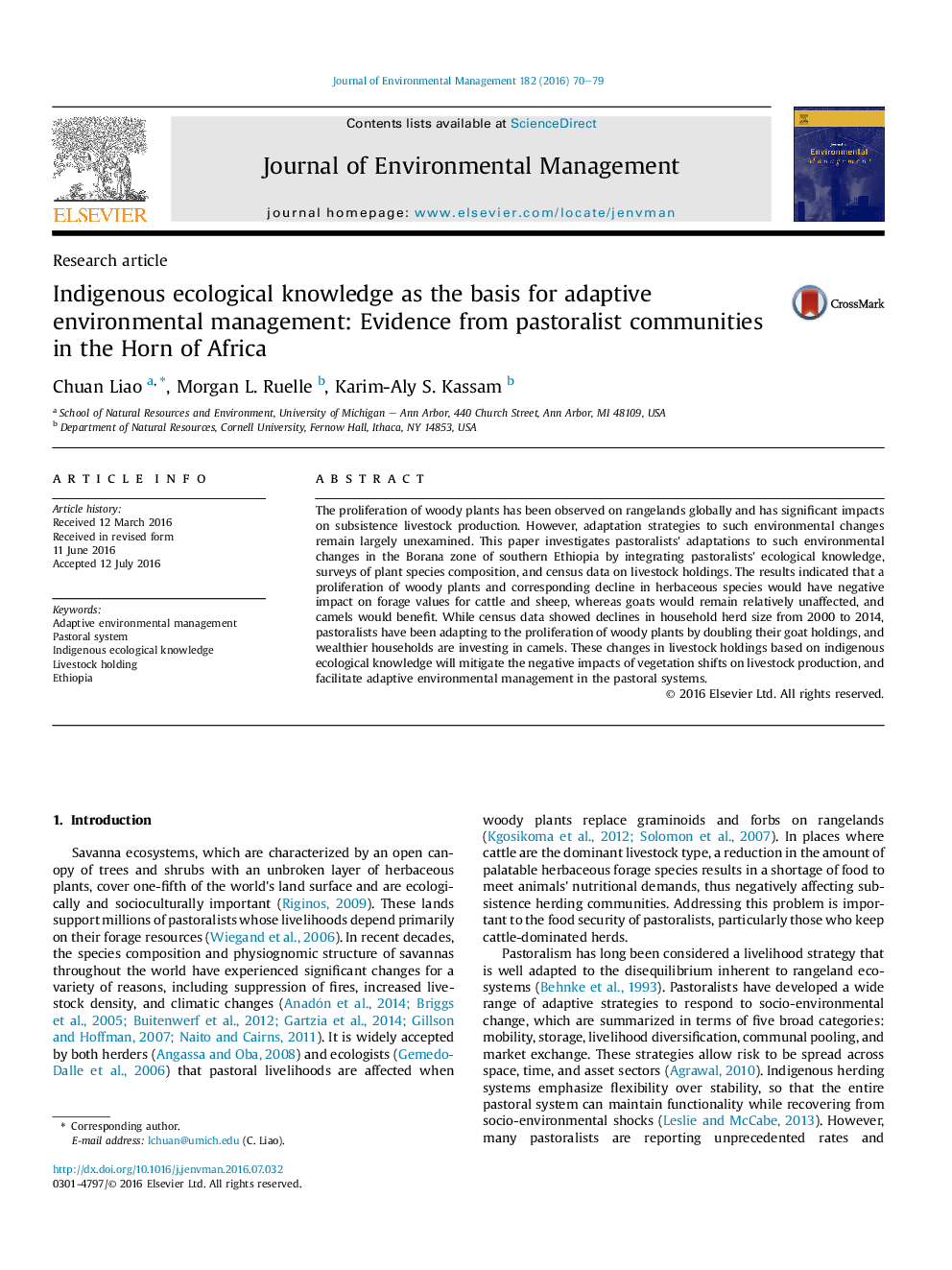| Article ID | Journal | Published Year | Pages | File Type |
|---|---|---|---|---|
| 7478946 | Journal of Environmental Management | 2016 | 10 Pages |
Abstract
The proliferation of woody plants has been observed on rangelands globally and has significant impacts on subsistence livestock production. However, adaptation strategies to such environmental changes remain largely unexamined. This paper investigates pastoralists' adaptations to such environmental changes in the Borana zone of southern Ethiopia by integrating pastoralists' ecological knowledge, surveys of plant species composition, and census data on livestock holdings. The results indicated that a proliferation of woody plants and corresponding decline in herbaceous species would have negative impact on forage values for cattle and sheep, whereas goats would remain relatively unaffected, and camels would benefit. While census data showed declines in household herd size from 2000 to 2014, pastoralists have been adapting to the proliferation of woody plants by doubling their goat holdings, and wealthier households are investing in camels. These changes in livestock holdings based on indigenous ecological knowledge will mitigate the negative impacts of vegetation shifts on livestock production, and facilitate adaptive environmental management in the pastoral systems.
Related Topics
Physical Sciences and Engineering
Energy
Renewable Energy, Sustainability and the Environment
Authors
Chuan Liao, Morgan L. Ruelle, Karim-Aly S. Kassam,
